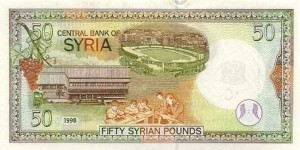
Western sanctions have halved Syria’s foreign reserves and should be stepped up to force Damascus to comply with a U.N.-backed peace plan, France’s foreign minister said on Tuesday.
Alain Juppe told officials from 57 countries meeting in Paris to discuss the efficacy of the sanctions that President Bashar al-Assad’s government should not be allowed to continue a 13-month violent crackdown on protesters with impunity.
Assad, who agreed a peace plan with U.N.-Arab League envoy Kofi Annan more than three weeks ago, has apparently ignored its primary demand: that tanks, troops and heavy arms be withdrawn from towns and cities, and all forms of violence cease.
“We must maintain pressure on the Syrian regime. That means strengthening sanctions that are having an impact on Syrian authorities,” Juppe said.
“We will judge the Syrian authorities by their actions. Any violations must be followed by a firm, swift response on the part of the Security Council.”
The European Union and United States have led the response to Syria’s crackdown with a broad range of sanctions. These include a ban on Syrian oil imports to Europe and measures against the Syrian central bank.
A new round of sanctions might be adopted when EU foreign ministers meet in Brussels on April 23.
Juppe said Syria’s foreign reserves had been cut in half by the sanctions, though its authorities were trying to get around them. The reserves were estimated at $17 billion before the unrest broke out.
Diplomatic sources estimated the sanctions had cut Syria’s oil output by 30 percent, costing Assad’s government $400 million a month in revenue, or $2 billion since November. Prior to EU sanctions, Damascus sold 90 percent of its oil to Europe.
There has been a steep fall in the Syrian pound, which hit a record low on the black market in March of around 100 to the dollar, compared to 47 before the protests erupted, sharply raising the cost of imports.
“With the deteriorating economy, there is a hyperinflationary context, sharp collapse of the currency and a fall in revenues. That pressure will eventually be felt,” said one diplomatic source.
RUSSIA CRITICAL
Russia, one of Assad’s strongest remaining allies, said on Tuesday that foreign countries’ support for opponents of the government posed a threat to a fragile ceasefire.
Foreign Minister Sergei Lavrov singled out the “Friends of Syria”, the group of Western and Arab nations that organised the Paris conference, as “encouraging the Syrian opposition not to cooperate with the government in providing for a ceasefire and the subsequent establishment of dialogue”.
Tuesday’s meeting, attended by diplomats and finance ministry officials from 57 countries, was not expected to decide on new measures, but to make sure that those already enacted were effective and not being circumvented with outside help.
“Certain countries are unambiguously signalling their support for the Syrian regime, others are more or less directly offering alternative deals,” Juppe told the meeting.
The Arab League has also slapped sanctions on Syrian VIPs, and recommended stopping commerci+al and passenger flights to and from Syria. However, unlike the EU, which imposes sanctions collectively, members of the Arab League impose them individually, and some have been reticent in applying them.
Iraq and Lebanon, neighbours of Syria that have sensitive sectarian, strategic and trade relationships with Damascus, have declined to join the League’s sanctions campaign and were not attending the Paris meeting. Jordan, another neighbour, is also concerned that sanctions will hurt its economy. The meeting was due to discuss financial help for the adjoining states.
U.N. peace monitors arrived in Syria on Monday to oversee a ceasefire undermined by persistent violence and the shelling of opposition stronghold of Homs by Assad’s forces.
U.N. Secretary General Ban Ki-moon said that ceasefire had been “generally observed” although there was still violence.
Reuters

Leave a Reply
You must be logged in to post a comment.